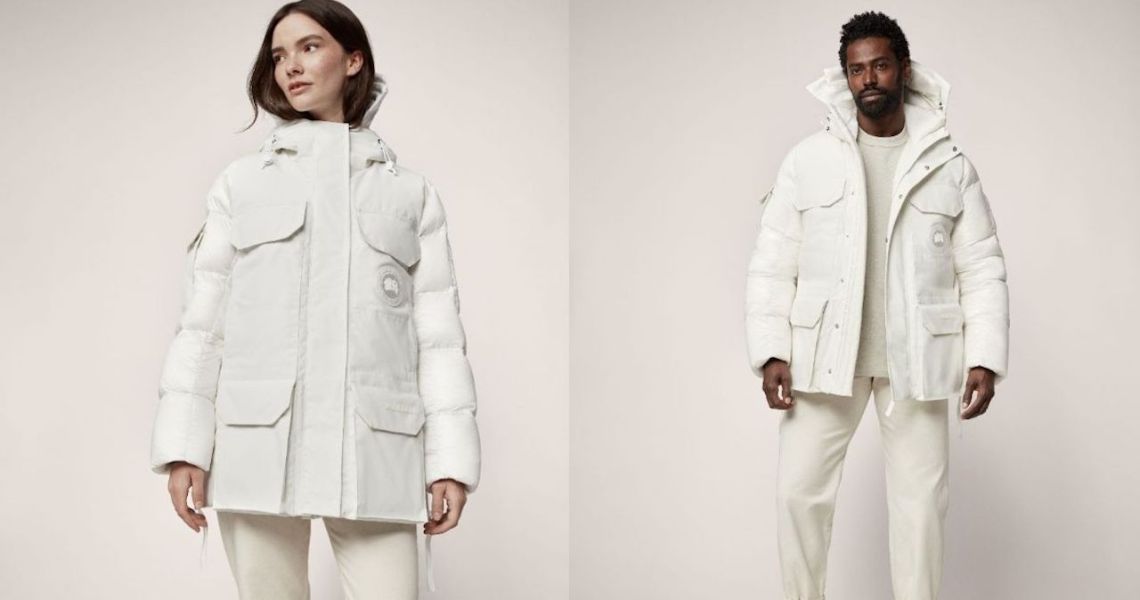Everyone is striving to find the best way to court Gen Z, but the generation is fickle. A January brand survey by Qualtrics showed that Gen Z is considered the hardest generation to please.
But Canada Goose, the Canadian brand known for its thick winter coats, has had significant success, thanks to changing controversial materials it uses and revamping its social strategy over the course of 2021.
A quarter of the brand’s online sales now come from Gen Z as of April 2022, after it made a concerted effort to bring in more Gen-Z customers in 2021, according to Penny Brook, chief marketing and experience officer at Canada Goose. What’s more, out of all of its customer age demos, Gen-Z accounts for the highest portion of its website visits, the most time spent on the website, the most pages viewed and the highest conversion.
“We often say brands who don’t prioritize sustainability today will not be around in 10 or 20 years,” Brook said. “The same can be said for [prioritizing] Gen Z. The brands that don’t adapt and grow with them won’t be around in a decade. Gen Z has high expectations of brands — as they should — and are redefining what experience truly means, as well as what role the fashion industry plays in our lives.”
Brook said the three main channels Canada Goose has been using to target Gen Z are Instagram, Snapchat and TikTok. On Instagram, millennials make up the majority of Canada Goose’s followers, but its Gen-Z following has doubled in the last year. Brook attributed that to a move away from overly-polished content in favor of more natural content. For example, it recently posted unfiltered photos taken on a polar trip by explorer Ben Saunders.
Across Snapchat and TikTok, Canada Goose has been busy. Last year, the brand partnered with the NBA for a TikTok challenge called Play in the Open, where it asked people to showcase themselves performing basketball trick shots. The vast majority of the 116 million uses of the #playintheopen hashtag were Gen Z, Brook said. On Snapchat, the brand launched a footwear collection in November with a corresponding, custom filter. Brook said the Snapchat filter led to “notably increased awareness, association and favorability” of the brand, but she could not provide further details on its engagement.
“This all further builds upon our ongoing influencer partnerships, which come to life across all three social channels,” Brook said. Some of the brand’s partner influencers include Instagram influencer Hannah Whiting, who is Gen Z herself, and designer Rhuigi Villasenor — both have around 300,000 Instagram followers. Canada Goose chooses influencers across a diverse range of interests, from high fashion, like Whiting, to sports. It recently partnered with the NBA, for instance.
Brook said the brand’s Gen-Z customers are almost entirely engaging via mobile, so all marketing content is now made so that it looks good and scales well to a mobile-size screen. Additionally, Klarna, Canada Goose’s pay-over-time partner, has proven quite popular with Gen Z, which, more than any demo, uses the feature to shop Canada Goose. That’s due, in part, to Canada Goose’s relatively high price point — around $1,000 for a coat — and Gen Z’s lack of purchasing power, compared to older generations. Brook said millennials are the largest consumer demo, when it comes to the brand’s coat purchasers.
“Our ads with mention of Klarna perform especially strong among Gen Z,” Brook said. “This is proof of how they are shopping differently [than other demos] and why it’s critical to meet them where they are with content that resonates.”
Finally, Brook said that Canada Goose’s prioritization of sustainability and more ethical practices have helped its popularity among Gen Z. Last year, the brand committed to stop buying new fur, and it promised to stop using fur entirely this year. It’s also pledged to pivot to 90% preferred fibers and materials, without changing prices, by 2025.
A 2021 DoSomething survey of Gen-Z shoppers found that 75% of them prefer to shop from ethical and sustainable brands. Still, Gen Z has been known to embrace less sustainable brands like Shein, as well.
“Our special projects and collaborations consistently over-index with Gen Z,” Brook said. “We continue to see a higher level of interest from Gen Z on collections like [our collaborations with] the NBA, [footwear designer] Salehe Bembury, [Canadian fashion boutique] OVO and [Chinese fashion designer] Angel Chen. They’re also [shopping] the Standard Expedition Parka and our HumaNature Capsule collection, the latter of which was designed with recycled materials and responsibly sourced down.”




